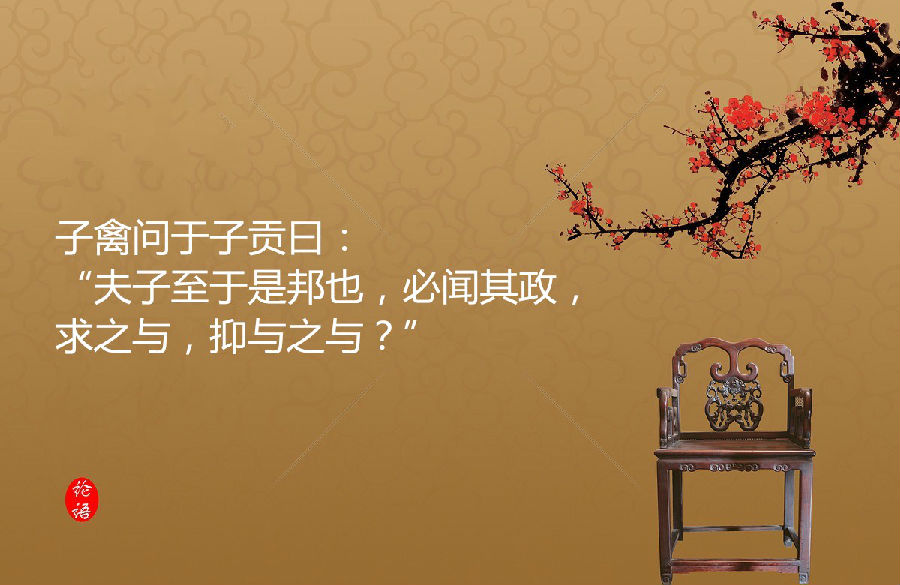(单词翻译:单击)
Tsze-ch'in asked Tsze-kung saying, "When our master comes to any country, he does not fail to learn all about its government.
子禽问于子贡曰:“夫子至于是邦也,必闻其政,
Does he ask his information? or is it given to him?"
求之与,抑与之与?”
Tsze-kung said, "Our master is benign, upright, courteous, temperate, and complaisant and thus he gets his information.
子贡曰:“夫子温、良、恭、俭、让以得之。
The master's mode of asking information, is it not different from that of other men?"
夫子之求之也,其诸异乎人之求之与?”
The Master said, "While a man's father is alive, look at the bent of his will; when his father is dead, look at his conduct.
子曰:“父在,观其志;父没,观其行;
If for three years he does not alter from the way of his father, he may be called filial."
三年无改于父之道,可谓孝矣。”
The philosopher Yu said, "In practicing the rules of propriety, a natural ease is to be prized.
有子曰:“礼之用,和为贵。
In the ways prescribed by the ancient kings, this is the excellent quality, and in things small and great we follow them."
先王之道,斯为美,小大由之。
"Yet it is not to be observed in all cases.
有所不行,
If one, knowing how such ease should be prized, manifests it, without regulating it by the rules of propriety, this likewise is not to be done."
知和而和,不以礼节之,亦不可行也。”
The philosopher Yu said, "When agreements are made according to what is right, what is spoken can be made good.
有子曰:“信近于义,言可复也。
When respect is shown according to what is proper, one keeps far from shame and disgrace.
恭近于礼,远耻辱也。
When the parties upon whom a man leans are proper persons to be intimate with, he can make them his guides and masters."
因不失其亲,亦可宗也。”


